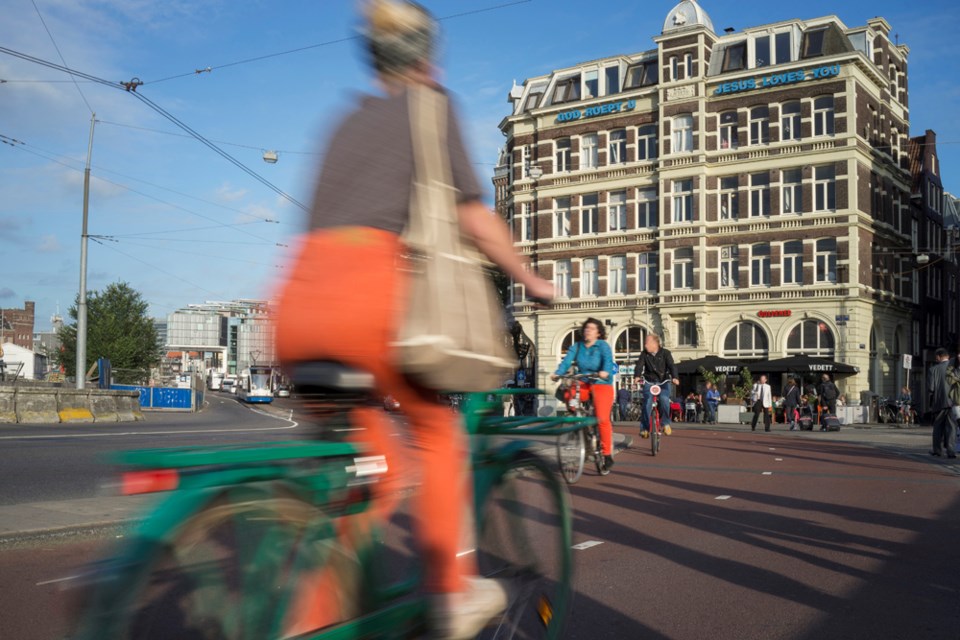Editor:
In recent weeks, I read a lot of letters from people opposed to bike lanes, yet their arguments were fraught and not well researched.
Contrary to claims that bike lanes are bad for business, there is a growing body of evidence showing the financial case for implementing more cycling infrastructure. Besides creating jobs during construction, research in several cities, including New York, demonstrated increased retail sales for local businesses after the construction of a bike lane, and that cyclists on average spend more than drivers.
On a recent trip to the Netherlands, I witnessed a cycling infrastructure that I could not have imagined in my wildest dreams. Separated two-lane bike lanes for fast and slow cyclists with an underground bike parkade system, in addition to sidewalks and two-lane roads with underground car parkades.
As a cyclist, I was able to move around safely. As a driver, I found the traffic to flow very efficiently.
Locals suggested this infrastructure was possible because the Netherlands do not suffer from either oil and gas lobby or car lobby. We need to be aware about the influence of those lobbies when considering our arguments.
I get around New West by bike and on foot exclusively and my two elementary school children (K and 2) ride to school and anywhere in New West. I own a car that I use to access our beautiful surroundings because unfortunately we don't have reliable public transportation with trains and buses (yet).
Active transportation users regularly connect at intersections and other stops, which builds and maintains community. I have never experienced a cyclist "tailgating" or ringing their bell excessively, something that happens with cars all the time.
Driving tends to heighten people's emotions, stress and anger. Cycling reduces it and supports physical and mental health and well-being. There is a reason so many more people started biking during COVID.
Commuting promotes independence for our children, as well as seniors and people with disabilities since the advent of e-bikes and other e-mobility.
I would love to live in a future where all members of our community can connect with one another, where our children and seniors can move around without fear and where the overall physical and mental health of our community is improved. Active Transportation is one step we can collectively take towards this future.
Jens Vent-Schmidt



